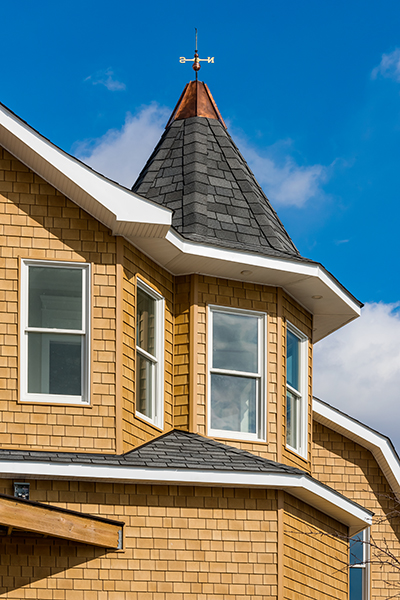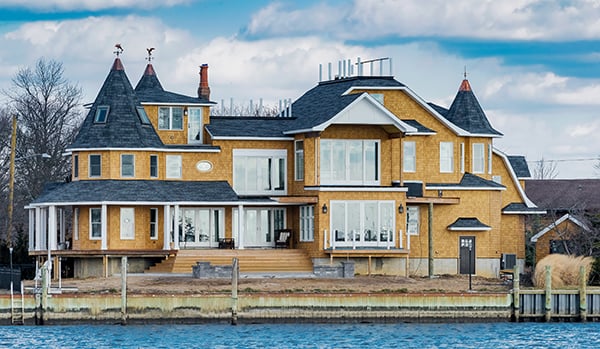Beach houses often evoke images of sun-soaked days, sea breezes, and relaxing retreats. But when it comes to building or renovating one, the costs can be as unpredictable as the ocean tides. One crucial aspect of beach house construction is the shake siding, a popular choice for its aesthetic appeal and weather resistance. This article delves deep into the costs associated with beach house shake, providing you with valuable insights into materials, installation, and ongoing maintenance.
What is Shake Siding?
Shake siding is a type of exterior cladding made from wood, usually cedar, that pieces together to create a rustic and charming appearance. It’s especially popular in coastal areas due to its ability to withstand varying weather conditions. Understanding the costs associated with shake siding is critical for any beach house owner or prospective buyer.
Beach House Shake Cost Breakdown
Material Costs
The primary factor influencing the cost of shake siding is the material used. Here’s a breakdown of common shake materials:
- Cedar Shake: $3 to $6 per square foot
- Composite Shake: $2.50 to $5 per square foot
- Vinyl Shake: $1.50 to $4 per square foot
Installation Costs
In addition to material costs, installation can significantly impact the overall expenses:
- Professional Installation: $4 to $10 per square foot
- DIY Installation: Minimal if you have the necessary skills and tools, but labor time should be considered.

Additional Costs
There are several additional costs you should consider:
- Permits: $50 to $500 depending on locality
- Maintenance: $1,000 annually for cleaning and sealing
- Insurance Premiums: May vary based on material and location
Factors Influencing Beach House Shake Cost
Location
The geographical location plays a significant role in pricing. Coastal areas may have higher costs due to the demand for weather-resistant materials.

Type of Shake
Choosing between cedar, composite, or vinyl will directly impact your budget. Cedar shake is the most traditional and expensive option but offers unmatched beauty and durability.
Design Complexity
Simple designs may save you money, while intricate patterns or custom work can drive costs up significantly.

Comparing Shake Materials
| Material | Cost per sq. ft. | Durability | Maintenance | Appearance |
|---|---|---|---|---|
| Cedar Shake | $3 – $6 | 15-30 years | Requires periodic staining/sealing | Natural, rustic look |
| Composite Shake | $2.50 – $5 | 25-50 years | Low maintenance | Variety of styles |
| Vinyl Shake | $1.50 – $4 | 30-50 years | Very low maintenance | Available in various colors |
Pros and Cons of Beach House Shake
Pros
- Visual Appeal: Shake siding adds a beautiful and classic look to any beach house.
- Weather Resistance: Designed for coastal climates, shake siding can withstand harsh conditions.
- Versatility: Available in various materials, styles, and colors.

Cons
- Cost: Quality shake siding can be expensive to install and maintain.
- Maintenance Needs: Certain materials require regular upkeep to stay in good condition.
- Environmental Impact: Sourcing wood may raise sustainability concerns.
Tips for Reducing Beach House Shake Costs
1. Shop Around
Compare prices from different suppliers and contractors. Often, you may find better deals by simply shopping around.

2. Opt for DIY Where Possible
If you have the skills, consider doing the installation yourself to save on labor costs.
3. Consider Composite Options
Composite shake materials can offer the look of wood without the high maintenance needs.

4. Buy in Bulk
If you are doing a larger project, buying materials in bulk can sometimes lead to discounts.
Local Experiences with Beach House Shake
Living in coastal regions often means adapting to the unique demands of beach environments. Communities like those in Cape Cod, Martha’s Vineyard, and the Outer Banks have a long history of utilizing shake siding due to their aesthetic appeal and functionality. Residents often share tales of how certain materials hold up better against salt and humidity—important considerations for any beach house owner.

FAQs about Beach House Shake Cost
What is the average cost of installing shake siding on a beach house?
The average cost, including materials and installation, typically ranges from $7 to $16 per square foot.
How long does shake siding last?
Cedar shake siding can last 15-30 years with proper maintenance, while composite and vinyl options can last up to 50 years.
Is shake siding worth the investment?
Yes, if you’re looking for durability, aesthetic appeal, and weather resistance, shake siding can be a worthy investment for a beach house.
How can I maintain my shake siding?
Regular cleaning, sealing, and potential repainting are essential for maintaining shake siding, especially in coastal areas.
Conclusion
Understanding the costs associated with beach house shake is essential for making informed decisions about your property. While initial expenses may seem high, the long-term benefits—both in aesthetic appeal and durability—can outweigh the costs. Whether you opt for traditional cedar, modern composites, or budget-friendly vinyl, each choice comes with unique advantages and considerations. Start your beach house project today, and enjoy the beauty and comforts of coastal living.
References
For further reading and to explore more about the costs and materials mentioned, you can check out the following resources: